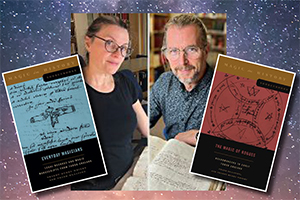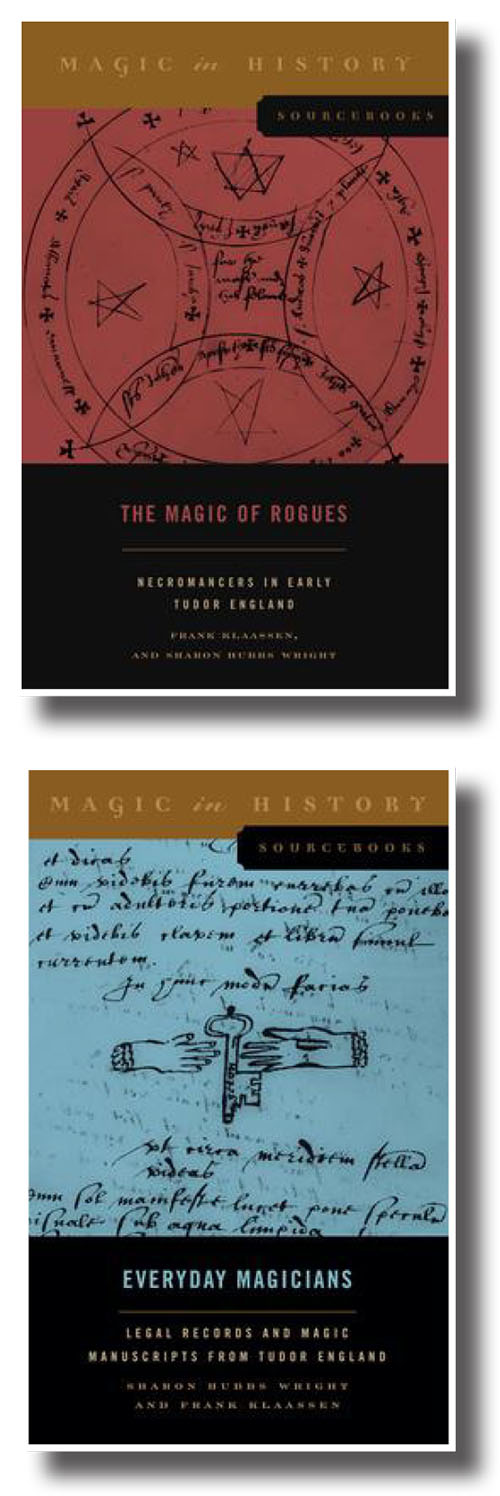
Double, double toil and trouble
Wright, Klaassen combine expertise to co-author pair of books on magic in old England
By Paul Sinkewicz
A magical alliance has been formed.
But fear not. The wizardry Dr. Sharon Wright and husband Dr. Frank Klaassen are concocting is meant to further academic knowledge – surely the best use for their spells.
The historians have co-authored two books dealing with the history of magic in England - The Magic of Rogues: Necromancers in Early Tudor England and Everyday Magicians: Legal Records and Magic Manuscripts from Tudor England.
Wright, Head of the Department of History at St. Thomas More College and professor of Classical, Medieval and Renaissance Studies, and Klassen, professor of history at the University of Saskatchewan, will be launching their books on Thursday, March 23 at 7 pm at McNally Robinson Booksellers.
Wright took the time to explain what was involved in five years of research and writing ahead of the launch:
Q: For you and Frank, what has been the most enjoyable part of working together on these books?
Frank and I work on different kinds of sources. He works on manuscripts concerned with magic and the transmission of magical ideas. I work on social history and the history of crime, and I use legal records and court cases as my sources. So, we never really imagined that we would find common ground in a project together. But we kept asking one another questions about things we were finding separately in our sources. Questions like “look at this deposition about digging up buried treasure by conjuring a daemon, what the heck are they doing” or “what magic manuscript must these people be referring to when they get caught carrying around bags of magic equipment, like parchment conjuring circles.” In the end it was clear we had some things worth writing about together. It has been fun, a lot of fun actually, and we have two books so far, and are working on a third one now about Women Magic Practitioners in Late Medieval Europe.
Q: What do you think are the common misconceptions the public has when they hear about 'magic' practitioners from the past?
People either immediately imagine witches or they think about Merlin (or Harry Potter). But magic practitioners were almost never accused witches and it would be wrong to assume they were practicing witchcraft. There were many different kinds of magic practitioners and they used different types of magic. There were elite ones, like the Elizabethan mage John Dee, who was a very learned scholar and who studied ancient magic and occult texts. There were also many work-a-day magic practitioners who lived in every town in medieval and early modern Europe who used charms and magical techniques to solve people’s problems. These people are sometimes known as cunningfolk.
Q: What would readers be most surprised to learn?
Magic practitioners, or cunning women and men, were well respected members of their communities, not much different from midwives. People trusted them and hired them based on word of mouth recommendations. They provided essential magical services, such as finding stolen goods, charming stubborn animals (like cows who refused to go into their barns), and helping people who believed they were under a witch’s spell break the enchantment. They protected people from witchcraft, they were “anti-witches.”
Q: So, what’s next?
Our next book, which is an ambitious project, will also take about five years and we have been very fortunate to receive funding for from the Canada Research Council to continue our research on women magic practitioners, who are very, very different from accused witches. They are magic professionals.
For more information: https://www.mcnallyrobinson.com/event-18391/Frank-Klaassen-and-Sharon-Hubbs-Wright-Joint-Book-Launch
